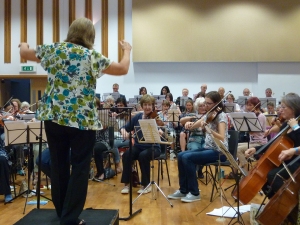 Imagine a very large rectangular hall, high-ceilinged. The orchestra filling a third of the space, the choir in four rows along a wall running the length of the hall, and an eager audience of about a hundred.
Imagine a very large rectangular hall, high-ceilinged. The orchestra filling a third of the space, the choir in four rows along a wall running the length of the hall, and an eager audience of about a hundred.
First Robin Reece-Crawford introduces the evening and comperes the concert with information about the composers and the musicians.
Every configuration of instrumentalists and  singers from the Summer School perform several pieces with great enthusiasm. The atmosphere is fantastic. As I’m tucked away in a far corner, which is fine – love those tymps! – I’d handed my camera to Charlotte Pullen, daughter of one of the violinists. See what happens when you sit in the front row! During the concert she takes some wonderful photos to give us a collection of happy memories. Well done, Charlotte, and thanks.
singers from the Summer School perform several pieces with great enthusiasm. The atmosphere is fantastic. As I’m tucked away in a far corner, which is fine – love those tymps! – I’d handed my camera to Charlotte Pullen, daughter of one of the violinists. See what happens when you sit in the front row! During the concert she takes some wonderful photos to give us a collection of happy memories. Well done, Charlotte, and thanks.
 There is music from Byrd to the Beatles, Pergolesi to Gershwin, Vivaldi to Rutter. In addition to the groups, tutor Owen Cox plays as he conducts Winter from Vivaldi’s Four Seasons, and tutor Gill Henshaw, accompanied by the orchestra, plays a movement of Weber’s Clarinet concerto. Stunning.
There is music from Byrd to the Beatles, Pergolesi to Gershwin, Vivaldi to Rutter. In addition to the groups, tutor Owen Cox plays as he conducts Winter from Vivaldi’s Four Seasons, and tutor Gill Henshaw, accompanied by the orchestra, plays a movement of Weber’s Clarinet concerto. Stunning.
The choir sings in different configurations under the ‘baton’ of three conductors. (Not that we’ve have seen a baton all week, have they gone out of fashion?) Here is the lower voices’ moment of glory, with Mike enthusing them from the front. 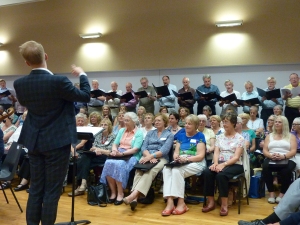
The concert comes to an end with a rousing performance of Johann Strauss’s Radetzky March, and choir and audience clap along. Beat that for enthusiasm, Vienna Philharmonic!
 And then our three amazing days of music making, learning new pieces and techniques, listening to first class music, being lead by dynamic conductors who worked so hard and brought out the best in us for the short time of the School, is over. Not forgetting the concerts and masterclasses. We trip off into the night with tired bodies but light hearts, new friendships made, challenges risen to, fine music and much laughter.
And then our three amazing days of music making, learning new pieces and techniques, listening to first class music, being lead by dynamic conductors who worked so hard and brought out the best in us for the short time of the School, is over. Not forgetting the concerts and masterclasses. We trip off into the night with tired bodies but light hearts, new friendships made, challenges risen to, fine music and much laughter.
More photos to follow – it might take a few days!
Here’s hoping there will be another Summer School – this one was aided greatly by the generosity of the University of Nottingham (my alma mater), who provided the space and facilities. Thanks too for the Summer School go to the Assistant Artistic Director of MfE, Alex Patterson  (I think this was his baby, if you see what I mean), Artistic Director Angela Kay, Adult Programme Co-ordinator Robin Reece-Crawford, Anne, Su and Gemma from the office, tutors and conductors Owen Cox, Mike Gregory, Gill Henshaw, Jane McDouall, Isobel Bounford, accompanists Stefan Reid, Tim Uglow and Martyn Parkes, and other musicians who kindly gave of their time to fill in the gaps or to encourage parts and sections, and of course to all the delegates. (Apologies if I’ve missed anyone.)
(I think this was his baby, if you see what I mean), Artistic Director Angela Kay, Adult Programme Co-ordinator Robin Reece-Crawford, Anne, Su and Gemma from the office, tutors and conductors Owen Cox, Mike Gregory, Gill Henshaw, Jane McDouall, Isobel Bounford, accompanists Stefan Reid, Tim Uglow and Martyn Parkes, and other musicians who kindly gave of their time to fill in the gaps or to encourage parts and sections, and of course to all the delegates. (Apologies if I’ve missed anyone.)
Now you might be wondering what happened to Quote of the Day. Well, it was awarded to Angela Kay, we had a titter about it but it is unprintable, so come along to a Music for Everyone event and join in the music making and fun. Thanks for reading – around the world, we gather!
Helena

 gave, were a different experience for those of us who sing or play regularly with Music for Everyone. They enabled us not only to hear wonderful performances but to then learn how to improve our own technique and performance.
gave, were a different experience for those of us who sing or play regularly with Music for Everyone. They enabled us not only to hear wonderful performances but to then learn how to improve our own technique and performance.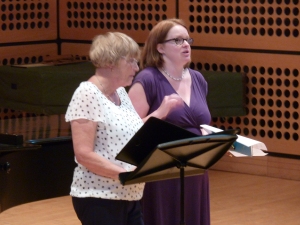

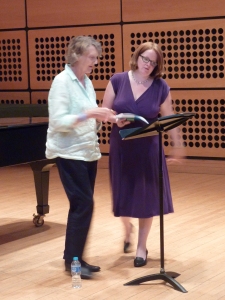
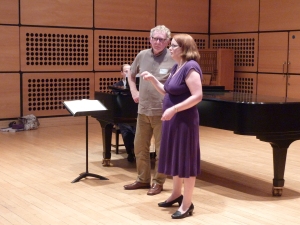
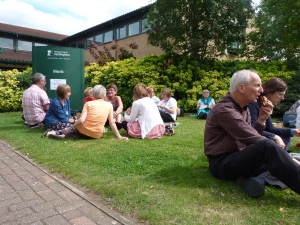







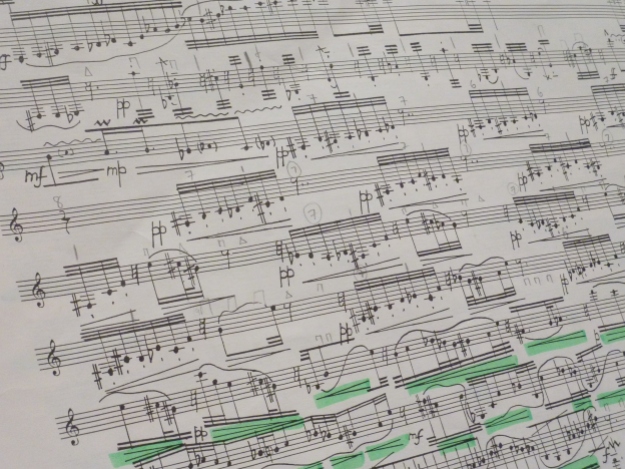
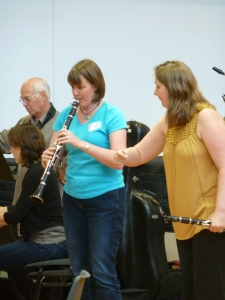
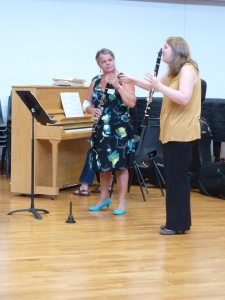

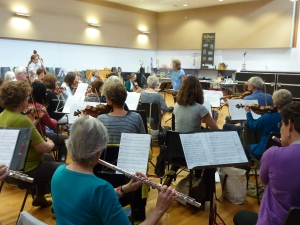


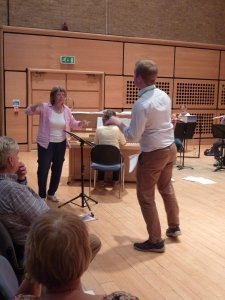
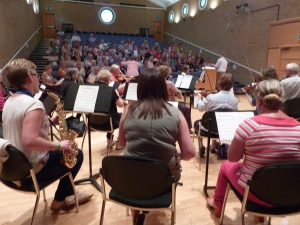
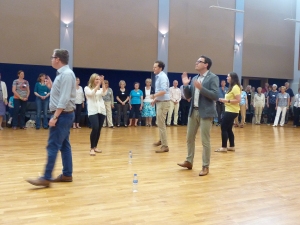
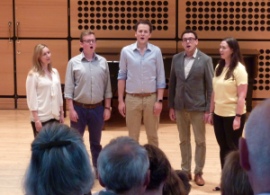 Clare Stewart, Greg Link, Alex Haigh, Ciarán Kelly and Charlotte Brosnan sang Dylan, Adele, Java Jive, Finzi, Bairstow, Sondheim and others with such attention to detail, listening intently to each other to keep the tuning and harmony tight, conveying the story of the lyrics and the emotion of the music. There was rapturous applause before we said goodbye. They set off to teach a lucky group elsewhere.
Clare Stewart, Greg Link, Alex Haigh, Ciarán Kelly and Charlotte Brosnan sang Dylan, Adele, Java Jive, Finzi, Bairstow, Sondheim and others with such attention to detail, listening intently to each other to keep the tuning and harmony tight, conveying the story of the lyrics and the emotion of the music. There was rapturous applause before we said goodbye. They set off to teach a lucky group elsewhere.